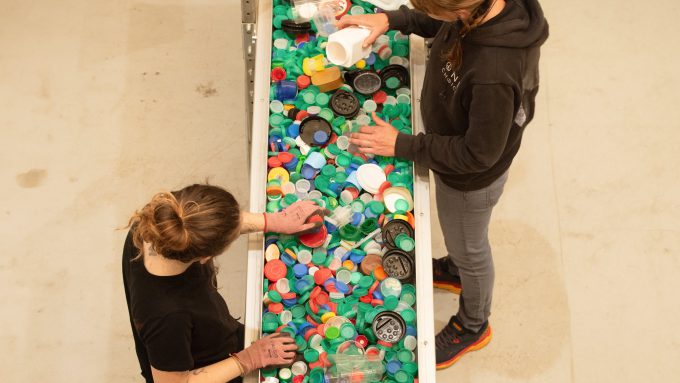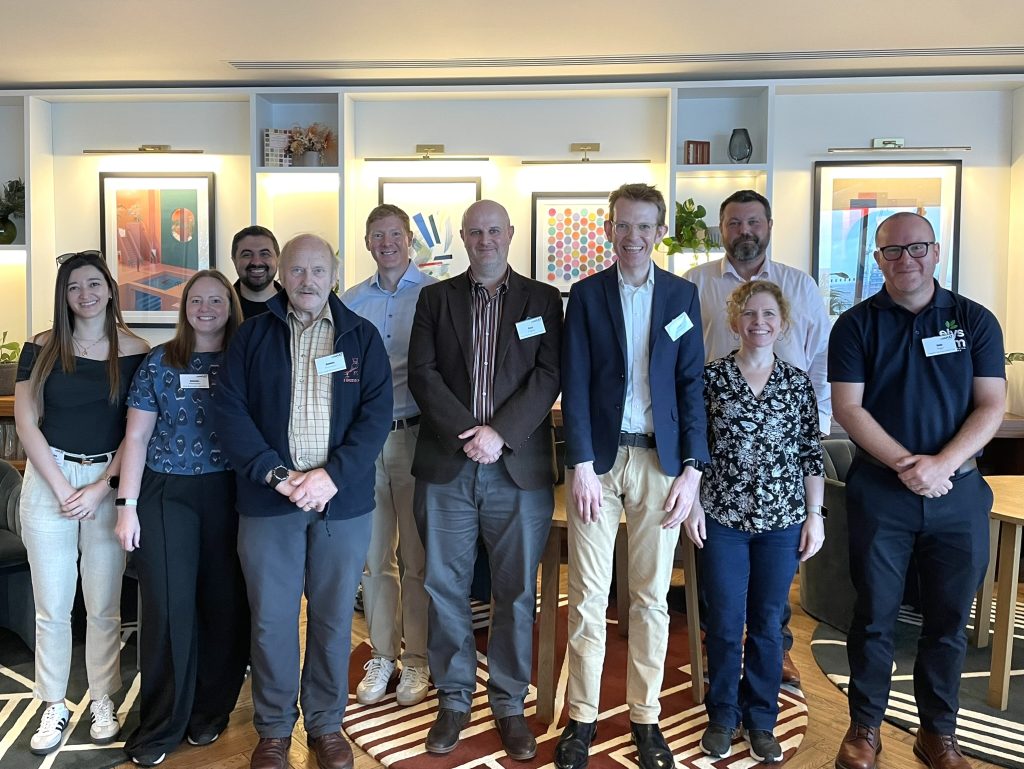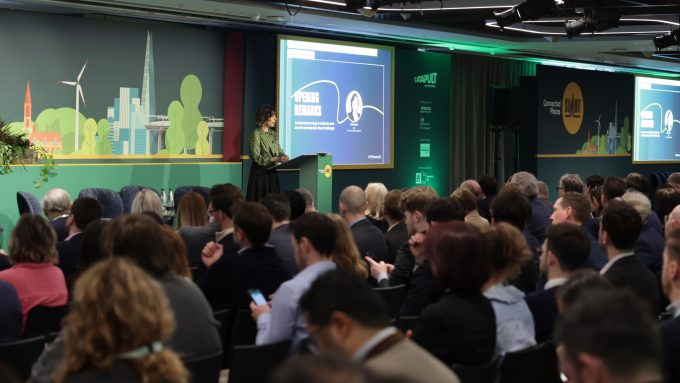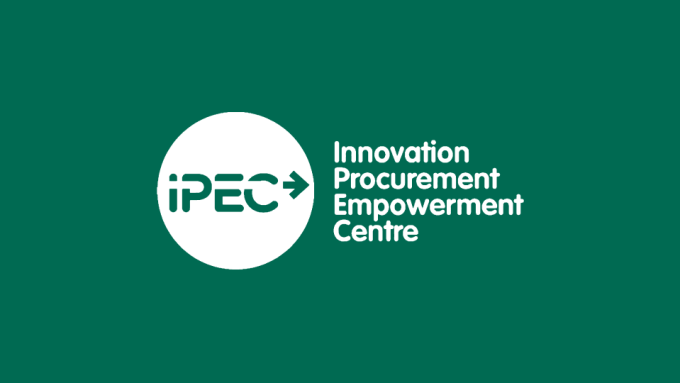
Black Country businesses dominate list of firms selected for green innovation funding

30.09.25, BIRMINGHAM, Connected Places Catapult, the UK’s innovation accelerator for transport, the built environment, cities and local growth, announced today the names of ten organisations selected to develop their technologies as part of the Clean Futures Accelerator.
The ten companies are all based in the West Midlands, with the majority hailing from the Black Country, one of the region’s industrial heartlands. Each company has an innovation addressing one of four challenge areas: net zero manufacturing, future fuels, clean energy conversion, and the circular economy. A total funding pool of £300,000 is available between the 10 SMEs.
Now in its third year, Clean Futures is delivered by Connected Places Catapult and Coventry University. The programme has already supported 39 innovative small to medium-sized enterprises, with 30 of those testing and implementing their technologies in an industry environment - validating the efficacy and impact of their new technology and processes. Businesses supported over the last two years of the accelerator have so far gone on to raise over £125m in contracts and private investment and create more than 50 jobs.
Clean Futures is part of the wider West Midlands Innovation Accelerator, designed to bolster the region’s innovation and research and development capability, as well as its capacity to spark commercial growth and investment. The West Midlands Innovation Accelerator is delivered in partnership with the Department for Science, Innovation and Technology, Innovate UK and the West Midlands Combined Authority.
The ten companies selected for the third cohort of the Clean Futures Accelerator, and their innovations, are:
Alucast is extracting primary grade aluminium from end-of-life materials to reduce the need for imports to the UK. The aim is to reduce energy and emissions in aluminium casting for industries including automotive.
B.G. Bullas is installing a ‘granulator’ to recycle scrap plastic into reusable raw materials, and upgrading fluorescent lighting to LEDs - reducing waste, energy use, and operational costs as part of ongoing sustainability efforts.
B & G is developing a new type of energy reclamation unit to help reduce power costs for major energy consumers and create a heat source from that lost energy.
EarthSavvy uses an AI engine and automated satellite data analytics to help manufacturers, planners and investors identify and prioritise opportunities to improve energy efficiency and reuse heat from industrial waste.
Global Nano Network has developed a dry electrode process for manufacturing battery cells to cut production costs, reduce emissions and eliminate toxic solvents. Its approach aims to scale-up sustainable electrode production.
Magrenko has developed a type of collet joint which holds piling sections together using only friction, which reduces environmental impact by removing the use of chemical adhesives.
NovNat is pioneering dual-use air-to-water systems that control humidity and produce ultra-pure water for industrial processes, helping advanced manufacturers such as electric vehicle battery makers be efficient and climate resilient.
The Seaweed Farm is a land-based algae farm, trialling the cultivation of seaweed as a bio-fuel, in order to develop scalable, enhanced and consistent yields for a range of commercial energy uses.
Thomas Dudley Foundry is introducing a waste segregation system that isolates shot blast and resin-bonded sand waste at source; repurposing them for construction and cement production to reduce landfill and support the circular economy.
Vital Auto is pioneering a new way to build vehicles—replacing waste-heavy methods with ‘near-net shape prototyping’ powered by robotics.
Alongside grant funding for process improvement and new technology testing, the programme will also provide bespoke commercial support from specialists at Connected Places Catapult. Coventry University will provide technical support in running the technology testing, with access to experts and facilities at the Institute for Advanced Manufacturing and Engineering. The Accelerator will also provide networking and showcasing opportunities, including access to industry leaders and investors to help facilitate additional contracts and business growth.
“We’ve seen fantastic impact from the companies supported through the West Midlands’ Clean Futures Accelerator so far - with over £125m in contracts and private investment secured and more than 50 jobs created.
“It is great to see so many of this year’s cohort hailing from the Black Country. With its rich industrial heritage, this area’s concentration of traditional manufacturers and foundries points to a deep skills base that has huge potential to drive forward the next generation of green technologies. I’m excited to see what this group of businesses can achieve with funding and in-region support from Connected Places Catapult and our partners, Coventry University.”Iain Mansell, Head of Regional Engagement at Connected Places Catapult
“Through the Institute for Advanced Manufacturing and Engineering, Coventry University is putting our manufacturing and engineering facilities to purposeful use with West Midlands SMEs to help them decarbonise while strengthening productivity and competitive advantage. We are de-risking the adoption of low-carbon technologies and translating sustainability ambitions into investable, bottom-line outcomes. This cohort offers a clear demonstration of what can be achieved; profitable, scalable moves towards sustainable manufacturing.”Professor Marcos Kauffman, Director for the Institute for Advanced Manufacturing and Engineering at Coventry University
About the West Midlands Innovation Accelerator
Led by Innovate UK on behalf of UK Research and Innovation, the pilot Innovation Accelerators programme invested £100m in 26 transformative R&D projects between 2022-25 to accelerate the growth of three high-potential innovation ecosystems – Glasgow City Region, Greater Manchester and West Midlands. The programme was boosted by an additional £30m of public funding for 2025/26 spread equally across the regions. Innovation Accelerators is piloting a new model of R&D decision making that empowers local partnerships to harness innovation to drive regional economic growth, attract private investment, and develop future technologies.





